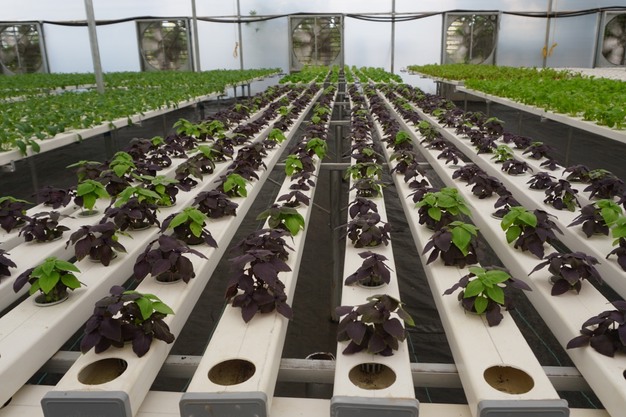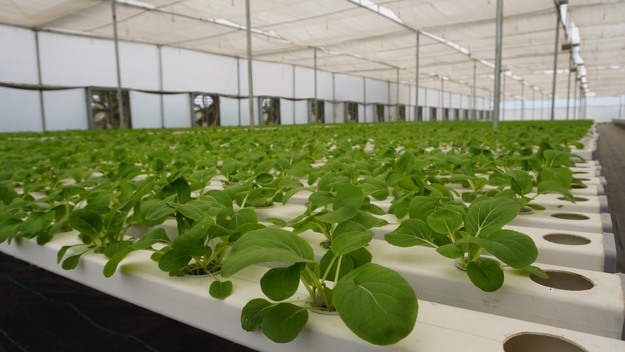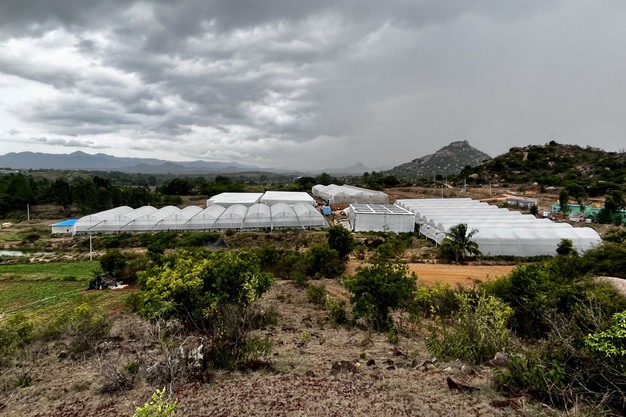"We're at an inflection point. Clean, traceable, responsibly grown produce is on track to become the preferred choice for a growing number of urban households," says Prasanth Ramachandran, Founder of Evergreen Farms, summing up India's evolving hydroponics industry.
Only a few years ago, hydroponic farming in the country was nascent. "When we started Evergreen Farms in 2018, barely anyone had managed to scale beyond half an acre. Profitability was uncertain, and attracting serious investors was tough." But now, he notes, "Early adopters who prioritized innovation and proprietary technology have scaled up and reaped rewards. Our operations have expanded to three acres, emphasizing commercial viability."
 © Evergreen Farms
© Evergreen Farms
According to Ramchandran, awareness has also shifted: "Urban consumers are increasingly concerned about pesticide residues and the provenance of their food. There's been a noticeable rise in sales of hydroponic produce, not just in premium outlets but on mainstream quick commerce platforms," he observes.
He adds, "The difference is often clear from the first use, where customers can immediately see and taste the freshness of ready-to-eat salad greens, microgreens, and exotic vegetables. In terms of quality, the produce is uniform, free from soil or pesticide residues, and grown in controlled conditions that reduce exposure to contaminants. This makes hydoponically grown produce especially appealing for businesses relying on consistency, such as restaurants or packaged salad brands, who prioritize low wastage."
 © Evergreen Farms
© Evergreen Farms
Shelf-life is another advantage. "Because our produce is harvested and delivered within hours and not days, it stays fresher for longer. Despite the premium, Ramchandran points out, "When you factor in the reduced spoilage, longer shelf life, and higher quality, the total cost of ownership often compares favorably."
Ramchandran further shares that the Indian Government support is finally catching up: "Before 2020, support was limited, and navigating subsidies involved far too much red tape. But recognizing hydroponics as a solution to challenges like shrinking arable land and water scarcity, the Ministry of Agriculture and Farmers expanded support by including hydroponics into broader national agriculture modernisation programs, allowing for subsidies," he explains.
 © Evergreen Farms
© Evergreen Farms
Investor interest is also growing, especially from global and ESG-focused funds, says Ramchandran. "Investors prioritize large, customer-facing hydroponic businesses that demonstrate scale, efficiency, and traceability. These enterprises are best positioned to supply premium domestic and export markets," he shares.
However, challenges remain: "Building robust cold chain infrastructure, educating both consumers and customers about the true value of hydroponic produce, and expanding viable crop varieties are still ongoing priorities. Controlling production costs while maintaining quality will be the main driver for growth."
As Ramchandran sums up, "Hydroponics will set a new benchmark for quality, safety, and efficiency in India's fresh food production. As urban demand rises and transparency becomes essential, these benefits will drive the shift in how Indian consumers and businesses source their greens."
For more information:
Prasanth Ramachandran
Evergreen Farms
Tel: +91 93 53 091 398
Email: [email protected]
www.evergreenfarm.in
